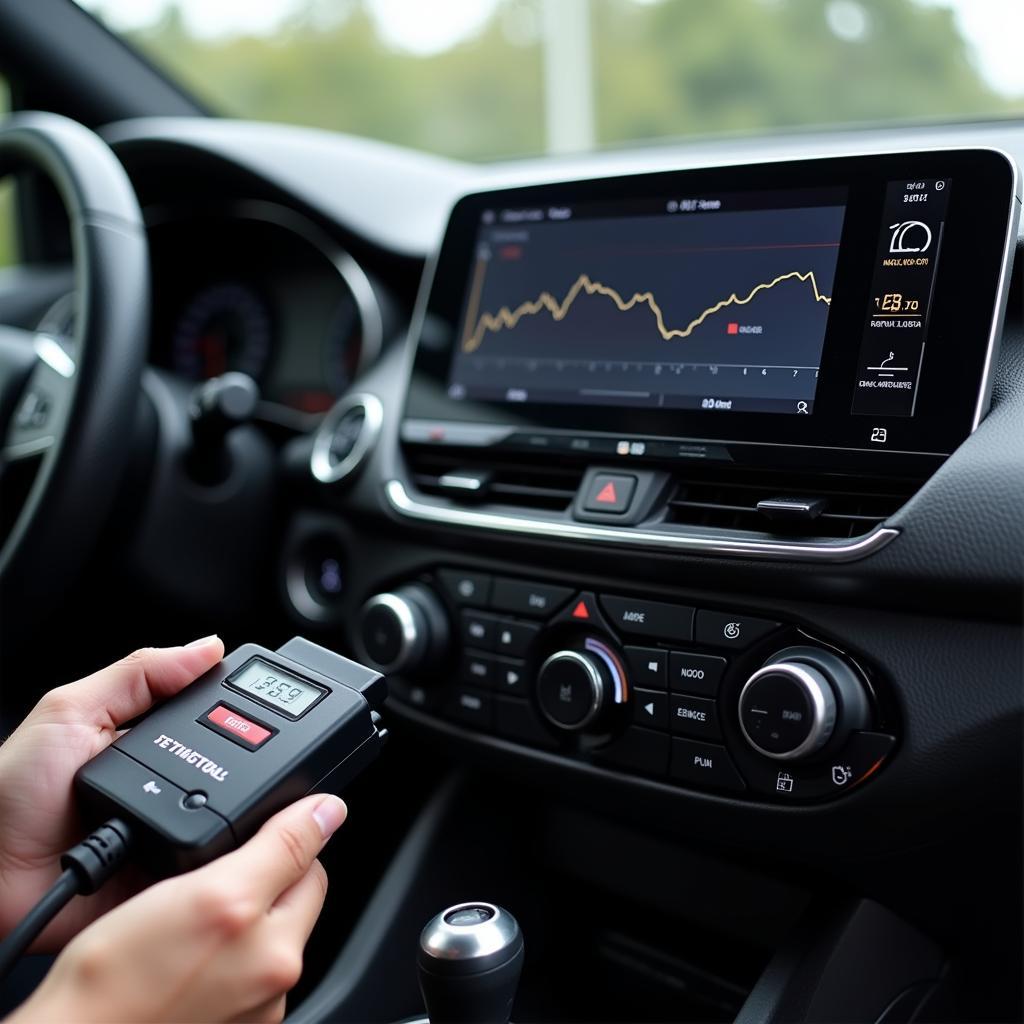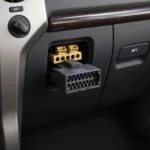When it comes to car maintenance and repair, having the right information at your fingertips is crucial. An OBD2 scanner is an essential tool for any car enthusiast or professional mechanic, providing invaluable insights into your vehicle’s health. But with so many options available, choosing the right OBD2 scanner can feel overwhelming. This comprehensive comparison will guide you through the key features, benefits, and factors to consider, helping you make an informed decision.
Understanding OBD2 Scanners and Their Importance
OBD2, which stands for On-Board Diagnostics 2, is a standardized system that allows external devices to access your car’s computer and retrieve diagnostic information. An OBD2 scanner acts as the interface between your vehicle and you, translating complex data into readable codes and parameters. This information helps identify potential issues, understand performance metrics, and even clear error codes.
Why You Need an OBD2 Scanner
Whether you’re a seasoned mechanic or a car owner looking to take charge of your vehicle’s maintenance, an OBD2 scanner can be a powerful ally. Here’s why:
- Diagnose Engine Problems: Identify the root cause of check engine lights, saving time and money on unnecessary repairs.
- Monitor Vehicle Performance: Track parameters like speed, RPM, fuel efficiency, and more to optimize performance and identify potential issues.
- Clear Error Codes: After resolving a problem, clear the error code and reset the check engine light.
- DIY Maintenance: Perform basic maintenance tasks like resetting oil life monitors or TPMS sensors.
Types of OBD2 Scanners
The market offers a wide range of OBD2 scanners, each catering to different needs and budgets.
- Basic Code Readers: These entry-level scanners primarily read and clear error codes. They are affordable and user-friendly, suitable for car owners who want to understand basic engine issues.
- Bluetooth Scanners: These scanners connect wirelessly to your smartphone or tablet, offering greater convenience and portability. They often come with mobile apps that provide advanced features like data logging, real-time graphing, and access to online repair databases.
- Professional-Grade Scanners: Used by mechanics and experienced technicians, these scanners offer comprehensive diagnostic capabilities. They can access manufacturer-specific codes, perform advanced functions like bi-directional control, and even program keys and modules.
Key Features to Consider in an OBD2 Scanner Comparison
When comparing OBD2 scanners, consider these crucial factors:
- Compatibility: Ensure the scanner supports your vehicle’s make, model, and year. Most scanners work with standard OBD2 protocols, but some older vehicles might require specialized adapters.
- Code Reading and Clearing: All OBD2 scanners should read and clear both generic and manufacturer-specific codes.
- Live Data Streaming: This feature allows you to monitor real-time engine parameters, providing valuable insights into your vehicle’s performance.
- Additional Features: Some scanners offer advanced features like ABS and airbag system diagnostics, battery testing, smog readiness checks, and more.
- Ease of Use: Consider the scanner’s interface, display, and user-friendliness. Look for scanners with intuitive menus and clear instructions.
- Price: OBD2 scanners range in price from affordable basic models to high-end professional tools. Determine your budget and needs to find the right balance.
“When choosing an OBD2 scanner, prioritize compatibility and features that align with your needs. Don’t be swayed by unnecessary bells and whistles if you only require basic diagnostics.” – John Smith, Senior Automotive Technician
Conclusion
An OBD2 scanner is an indispensable tool for any car owner or mechanic. By understanding the different types, features, and factors to consider, you can choose the scanner that best suits your needs and budget. Whether you’re a DIY enthusiast or a professional technician, the right OBD2 scanner empowers you to take control of your vehicle’s health and ensure optimal performance for years to come.
FAQs
Q: What is the difference between generic and manufacturer-specific codes?
A: Generic codes apply to all OBD2-compliant vehicles, while manufacturer-specific codes are unique to each carmaker, providing more detailed information about specific systems.
Q: Can I use an OBD2 scanner on a motorcycle?
A: Some motorcycles, especially newer models, use the OBD2 standard. However, older motorcycles might have different diagnostic systems.
Q: Do I need a professional-grade scanner for DIY repairs?
A: Not necessarily. Basic code readers and Bluetooth scanners are sufficient for most DIY tasks.
Q: Can an OBD2 scanner fix my car problems?
A: No, an OBD2 scanner only diagnoses problems. You’ll need to repair the underlying issue to resolve the problem permanently.
Q: How often should I use my OBD2 scanner?
A: It’s good practice to scan your vehicle periodically, even if there are no warning lights, to catch potential issues early on.
Need further assistance in choosing the right OBD2 scanner? Check out our detailed reviews of OBDLink MX+ OBD2 Bluetooth Scanner for iPhone Android and Windows and explore our comprehensive guide on ELM327 Interface OBD2 Driver for in-depth information.
Looking for an OBD2 scanner for your iPhone? Visit our dedicated page on OBD2 Code Reader for iPhone to find the perfect solution.
Need a reliable OBD2 scanner supplier? We can help! Contact us at WhatsApp: +1(641)206-8880, Email: [email protected]. Our 24/7 customer support team is here to assist you.

